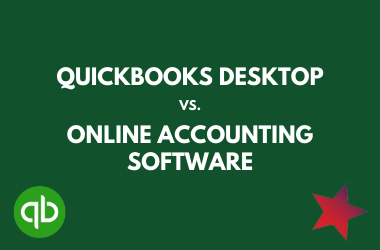What is a S Corp?
Definition of S Corp for Those in the Performing Arts
An S corporation (S corp) is defined as a legal business entity that is taxed as a partnership rather than separately from its owners. Income is passed through from the corporation (often called a “pass-through entity”) to its shareholders (usually individuals), who then report this information on their personal tax returns. This S Corp designation gives the entity the benefits of a corporation without the risk of double taxation on income, such as with a C corporation. Only U.S. entities with 100 or fewer shareholders can be structured as S corps, so these are commonly used by smaller entities that wish to gain the benefits of incorporation without the burden of corporate tax. As an S Corp, the business’s income, deductions, and tax liabilities generally flow through to the individual shareholders’ personal tax returns. S corps don’t have to pay corporate tax like a C corp, and they can still deduct expenses from their taxes. If you are functioning as a S corp in order to deduct business expenses from your personal income so that your total income for the year is reduced and therefore less taxable, it’s important to remember that this will reflect longterm on your personal taxes. Claiming less income to the IRS can be beneficial for reducing the amount of taxes paid back on income, but since S corps do not separate personal and business taxes, you may not be able to show a history of substantial earnings. This can lead to difficulties when applying for housing and loans.
A S corporation (S corp) is a legal business entity that is taxed as a partnership rather than separately from its owners. This gives the entity the benefits of a corporation without the risk of double taxation on income, such as with a C corporation. Only U.S. entities with 100 or fewer shareholders can be structured as S corps, so these are commonly used by smaller entities that wish to gain the benefits of incorporation without the burden of corporate tax. Income is passed through from the corporation (often called a “pass-through entity”) to its shareholders (usually individuals), who then report this information on their personal tax returns. Because S corps create credibility and commitment with clients and prospects, without the regulation of a C corp, they are a popular choice for many entities. S corps don’t have to pay corporate tax like a C corp, and they can still deduct expenses from their taxes. Because any corporate profits and losses are passed through to the personal tax return of its shareholders, however, it’s worth careful consultation with an accountant and lawyer before making a final decision.
Many Performing Arts Companies are an Ideal Fit to Become a S Corp
Although performing arts entities can become enhanced by an S-corp status there are many decisions to consider that have a large impact when deciding to become an S-Corp. S-Corps can be beneficial for businesses that generate reasonable profits and want to avoid double taxation. However, if the performing arts entity is a nonprofit organization or if the profits will be reinvested heavily into the organization, the tax advantages of an S-Corp may not be as relevant. The structure of an S-Corps has specific ownership requirements, such as limiting the number of shareholders and being owned by individuals and certain trusts. If the performing arts entity has a complex ownership structure or intends to raise funds from a larger pool of investors, an S-Corp might not be the best choice. Similar to a C-Corp an S-Corp provides limited liability protection for their shareholders, meaning the personal assets of shareholders are generally shielded from the company’s debts and liabilities. However, this protection can be diminished if the entity engages in wrongful acts or fraud.
You will have specific legal and administrative requirements as an S-Corp, such as holding regular shareholder meetings and maintaining corporate minutes. If the performing arts entity has limited resources or wants to maintain a simpler organizational structure, other options like limited liability companies (LLCs) may be more appropriate. The legal and tax considerations for business entities can vary by state so make sure to understand the specific regulations and implications for the performing arts entity’s location. If the performing arts entity intends to seek funding through grants or donations, its legal structure may impact eligibility for certain grants and tax-exempt status. Nonprofit organizations, for example, have distinct tax advantages and access to specific grants that might not be available to for-profit S-Corps. Consider the long-term vision for the performing arts entity. If there are plans for significant growth, attracting venture capital, or going public in the future, other corporate structures like C-Corps might be more suitable.
nextSteps | 2.16.23
Latest Blog Posts
Finding the Right Grant Funders for You
Finding the Right Grant Funders for You: Essential Tips NEXTSTEPS GUEST WRITER: ANNA BRADY MARCUSGrant writing means finding the right grant funders for your organization Getting started with grant writing (or Institutional Development) is a daunting process, but it’s...
Quickbooks Desktop versus Online Accounting Software
Quickbooks Accounting Software: Desktop versus Online OptionsComparing Quickbooks Accounting Software: Desktop versus Online Options If you’ve already chosen Quickbooks as your accounting software, the next step is to choose between their various offerings – desktop...
NYC Dance Rehearsal Space for Rent
NYC Dance Rehearsal Spaces for RentBelow is a comprehensive list of studio rental spaces in NYC. If you know of a space not listed on this page, you may submit a studio rental location to nextSteps here. Select the image below to navigate to a map with these listings....



